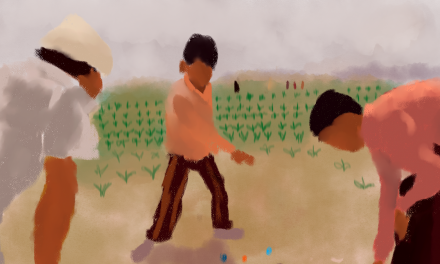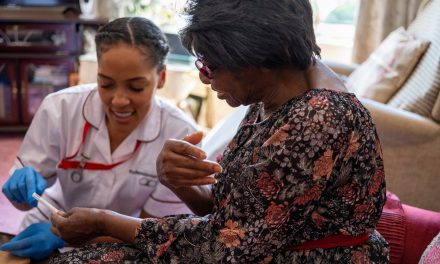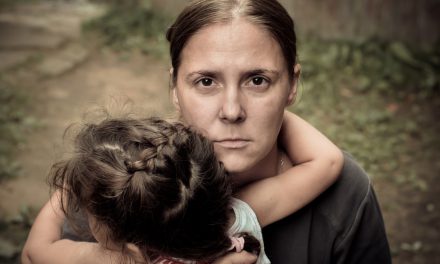Transportation is fundamental to public health. Without affordable, reliable access to transportation, people may be unable to attend health care appointments or receive necessary medication and preventive treatments. When transportation is not an option, many people will delay health care until a crisis occurs, leaving them at the mercy of emergency department staffing and resources.
In rural areas, both transportation and emergency services are severely lacking, sometimes creating a fatal impact. In Kaiser Health News’ emotional podcast series Where It Hurts, Sarah Jane Tribble interviews rural residents about the closure of a critical access hospital and its devastating effect on the community.
In one interview, a woman describes a seemingly unending night, chasing the ambulance carrying her husband to the hospital, only to realize the emergency room was closed. She waited for hours relying on helicopters to transport her husband to the next closest emergency room, only to eventually be told none were available, without being given a reason why.
To fill transportation gaps in rural Missouri, the Missouri Rural Health Association (MRHA) hopes to help community champions expand their understanding of access barriers and create sustainable transportation solutions. MRHA partnered with Missouri University (MU) Extension and School of Medicine’s Office of Health, Outreach, Policy, and Education (HOPE) to deliver the Mobility Management Certification Program. This program uses participants’ lived experience and understanding of transportation in their communities to develop a tangible action plan to bridge transportation gaps across multiple networks.
Mary Gordon, HealthTran director at MRHA, partnered with MU Extension’s Sherry McDonald, Ed. D. and Administrative Consultant II, to develop the program’s curriculum. Gordon began working with MRHA in 2014 and now oversees HealthTran and the Mobility Management Certification Program, working to improve access for all.
Through HealthTran, patients in need of transportation to and from health care appointments are connected to volunteer drivers in the community. HealthTran drivers and riders often establish long-term connections, creating sustainable transportation options between friends and neighbors.
Through the Mobility Management Certification Program, Gordon hopes to find similar success by connecting the dots between silos and pairing unused funding with existing transportation networks. Mobility management focuses on four key pillars: coordination, collaboration, advocacy for the unheard, and liberated access to transportation. Learn more about this collaboration and other rural health highlights in our editorial series covering MRHA’s 2021 Get Link’d Conference.
Program Details
The Mobility Management Certification Program is funded through the Federal Transportation Administration (FTA) via I-CAM and C-CAM grants used to develop the curriculum in partnership with MU Extension and HOPE. The course features various interactive modules that include podcasts, readings, assessment quizzes, and more. The training is self-guided and can be completed between 4-12 weeks, depending on the user’s pace.
“We built it that way,” Gordon said. “We wanted it to be flexible for everybody.” While Community Health Workers (CHWs) are a natural fit for this training, Gordon believes every background offers a necessary perspective. “It could be anybody,” she said. People working in transit systems, city administration, community advocacy, and existing transportation services all bring an element that could further connect the dots.
“As you are going through the course, you are using your own life experience and your own needs,” she said. “So if you live in a specific county and want to address transportation there, you select a specific targeted population you are looking for.” The first training module allows you to determine your service area and target populations to allow a customized approach.
Participants’ lived experiences guide the planning process, and ultimately produces a community-specific toolkit to take away at the end. The result is a tangible plan that users can then connect with other toolkits, creating a framework for an eventual nationwide system of transportation services and community champions to oversee them.
“We hope this training is either something you can take in the current job you have, or you can move up in pay or in position because you now have something more to offer your employer,” Gordon continued. “It can also be something you take home that opens the door to a job with a health care provider, a city administrator – almost anywhere. The mobility management curriculum has a little bit of everything.”
Access Barriers
While funding and transportation networks exist throughout rural, suburban, and urban areas, many leave access gaps where patients fall through. “MRHA works with so many health providers and all of them are facing the same problem: they have patients that need to get into care and don’t have access,” Gordon said. “They can spend hours and hours trying to find a ride. We wanted to give them a solution where they could find a ride or have someone who knows how to find a ride in a quicker and simpler way.”
“Everybody has specific guidelines, specific pots of money – there is never any one person focused on solving transportation,” she continued. “It’s the huge elephant in the room and everyone wants to ignore it because nobody wants to address it.” To combat these barriers, Gordon hopes the training will provide an opportunity for community members to step up and become transportation champions.
The training is designed to educate users on how to identify access barriers in one’s community, recognize the roots of transportation gaps, connect silos and find unused funding, and collaborate with neighboring communities on expandable, sustainable solutions. Gordon hopes to see program users become mobility managers in their community and continue expanding upon the success of HealthTran and similar programs.
“It’s so inspiring to see what other states and other communities have done with the concept of mobility management,” she said. “It doesn’t take a lot of money, but it does take someone to keep the talks going, to keep the ball rolling. We need to have a mobility manager dedicated to coming in and asking questions.”
Program Status
The Mobility Management Certification Program is currently in its final testing stage, with three regional mobility coordinators having already completed one-on-one training. This testing, as well as input from the Department of Health and Senior Services, CHWs, health providers, public transit workers, and more, provided more information to continue to develop the training and expand the program’s focus.
Program enrollment is slated for mid-October through early November. The FTA’s C-CAM grant that began the program will continue this program for an 18-month period. Through this grant, the program will begin looking towards expansion to neighboring states.
According to Gordon, one of the biggest challenges in access gaps is understanding what the need is, understanding what resources already exist, and connecting the two. “My conversation with other states is not only to not recreate the wheel and find out what they have, but is there a way we can create a national core mobility management program that can be transferred and recognized between states?”
“Everybody is affected by transportation barriers, whether you know it or not, because it’s a cost,” she continued. “It’s a cost to your health, and when your community is only as healthy and wealthy as the ones who have the least, you have got to move that up.”
During the program’s pilot period, Gordon helped serve a diabetic patient with 60 different trips. After moving to rural Missouri with no nearby family and a wife unable to drive, he suddenly found himself without reliable transportation following an infection in his foot. The nearest hospital was a 40-mile drive, forcing him to rely on the only transportation available.
“He was facing losing his leg, going into assisted living until he could get mobility, his wife to move in with him – this man was facing drastic life changes. Because we could get him there, not only did we save his leg, but he’s able to drive and deliver food to people and is paying it forward to a lot more people.”
“One success can build a lot more successes,” she continued. “Everybody needs to advocate for transportation. Transportation in rural areas has to change.”
For more information about the Mobility Management Certification Program or for questions about enrollment, contact Mary Gordon at mary@morha.org or 573.616.2740.
Listen to Mary Gordon’s interview about the Mobility Management Certification Program for the accessHealth podcast: https://soundcloud.com/graceadvertising/interview-with-mary-gordon-about-the-mrha-mobility-management-certification-program








